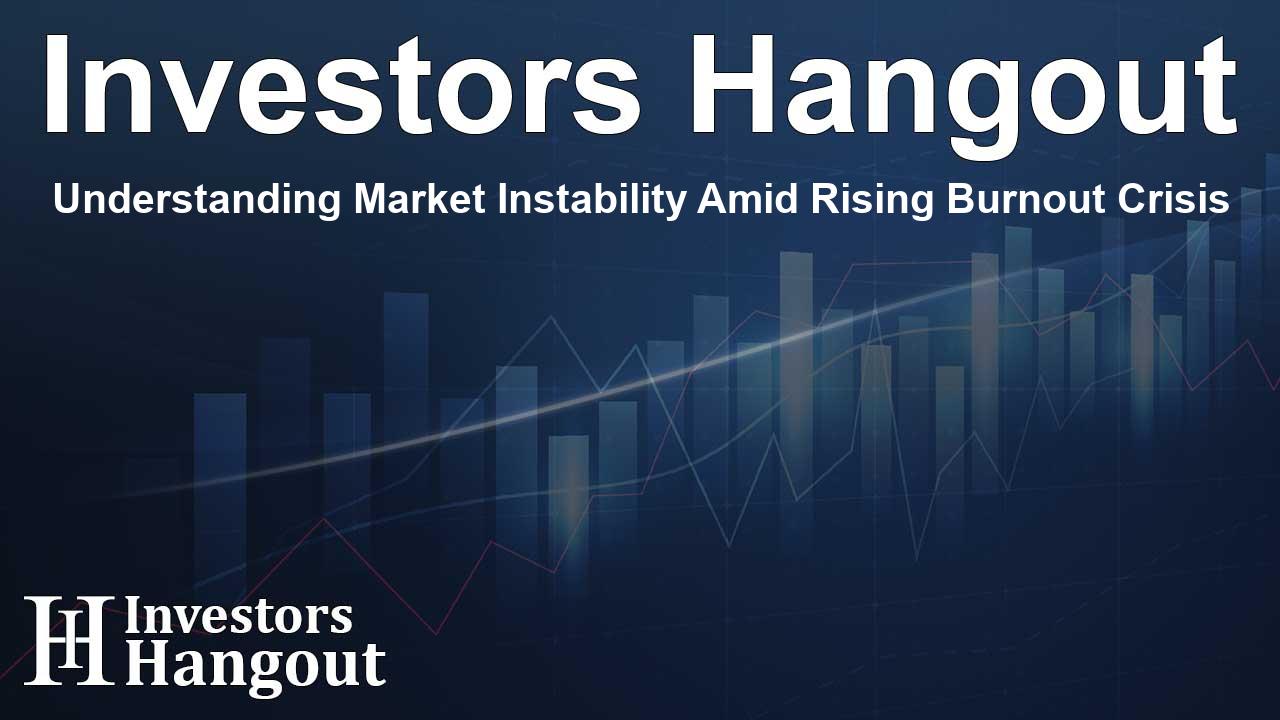Understanding Market Instability Amid Rising Burnout Crisis

The Challenges of Burnout Economics
Addressing systemic failures is crucial for maintaining market stability, yet we often engage in superficial solutions that fail to tackle the root causes. The ongoing narrative around our economy often detracts from underlying issues that can lead to widespread burnout among the workforce.
Narrative Control in the Modern Economy
The prevailing attitude of 'everything is great' often masks the deep-rooted problems affecting employee morale and productivity. This corporate narrative perpetuates a facade that discredits real concerns faced by employees, fueling a culture where individual struggles are ignored.
The Reality Behind the Statistics
Statistics that focus on GDP growth and job availability are prevalent, but they provide a limited view. Key metrics related to employee satisfaction and the reasons behind job resignations are frequently overlooked. Burnout remains a poorly studied phenomenon, leading to an environment where people feel unsupported and undervalued.
The Experience of Burnout
Burnout is a complex syndrome that encompasses a variety of human experiences. Individuals suffering from burnout often feel misunderstood, especially when well-meaning advice, such as taking a vacation, is offered as a remedy. While well-intentioned, these suggestions often fall short as they fail to address the core issues contributing to burnout.
The Weight of Independence and Employment
People often feel that they must carry the weight of their responsibilities alone. Stressors can range from long hours at work to challenging interactions with customers. This accumulation of stress leads to a breaking point where many choose to quit, not out of desire but as a necessary means of self-preservation.
Impact of Economic Pressures
As the economy shifts toward stagflation, workers are confronted with rising costs that erode their purchasing power. A shift toward freelance and gig economies further complicates matters, leaving many without the safety nets previously associated with traditional employment.
Systemic Failures and the Future of Work
Understanding why people choose to leave their jobs means recognizing systemic issues. When employers prioritize profit over employee well-being, they create an environment ripe for burnout. The misconception that individuals will accept any job during economic downturns overlooks the real effects of psychological and physical exhaustion.
The Cost of Ignoring Burnout
In ignoring the prevalence of burnout, organizations risk losing valuable employees and creating a dysfunctional workplace. The reluctance to address these problems perpetuates a cycle of decline, where surviving rather than thriving becomes the norm for many workers.
A Call to Action for Change
The rising tide of burnout signals an urgent need for change within the workplace. Acknowledging and addressing systemic failures should become a priority for businesses looking to maintain stability and morale. The move toward a more humane approach to employee welfare is not just beneficial; it is essential for avoiding a future of instability.
Frequently Asked Questions
What is burnout in the workplace?
Burnout is a state of physical, emotional, and mental exhaustion caused by prolonged stress and overwork. It affects productivity and overall well-being.
How does systemic failure contribute to employee burnout?
Systemic failures, such as lack of support and unrealistic demands, create an environment that fosters stress and employee discontent, leading to burnout.
Why is it important to discuss the topic of burnout?
Discussing burnout helps to bring awareness to its prevalence and significance, promoting a healthier work environment and better mental health among employees.
What can companies do to prevent employee burnout?
Companies can implement supportive policies, encourage work-life balance, and promote a culture of open communication to reduce burnout among employees.
How can individuals recognize they are experiencing burnout?
Signs of burnout can include chronic fatigue, decreased performance, disengagement from work, and negative attitudes toward colleagues or tasks.
About The Author
Contact Thomas Cooper privately here. Or send an email with ATTN: Thomas Cooper as the subject to contact@investorshangout.com.
About Investors Hangout
Investors Hangout is a leading online stock forum for financial discussion and learning, offering a wide range of free tools and resources. It draws in traders of all levels, who exchange market knowledge, investigate trading tactics, and keep an eye on industry developments in real time. Featuring financial articles, stock message boards, quotes, charts, company profiles, and live news updates. Through cooperative learning and a wealth of informational resources, it helps users from novices creating their first portfolios to experts honing their techniques. Join Investors Hangout today: https://investorshangout.com/
The content of this article is based on factual, publicly available information and does not represent legal, financial, or investment advice. Investors Hangout does not offer financial advice, and the author is not a licensed financial advisor. Consult a qualified advisor before making any financial or investment decisions based on this article. This article should not be considered advice to purchase, sell, or hold any securities or other investments. If any of the material provided here is inaccurate, please contact us for corrections.
